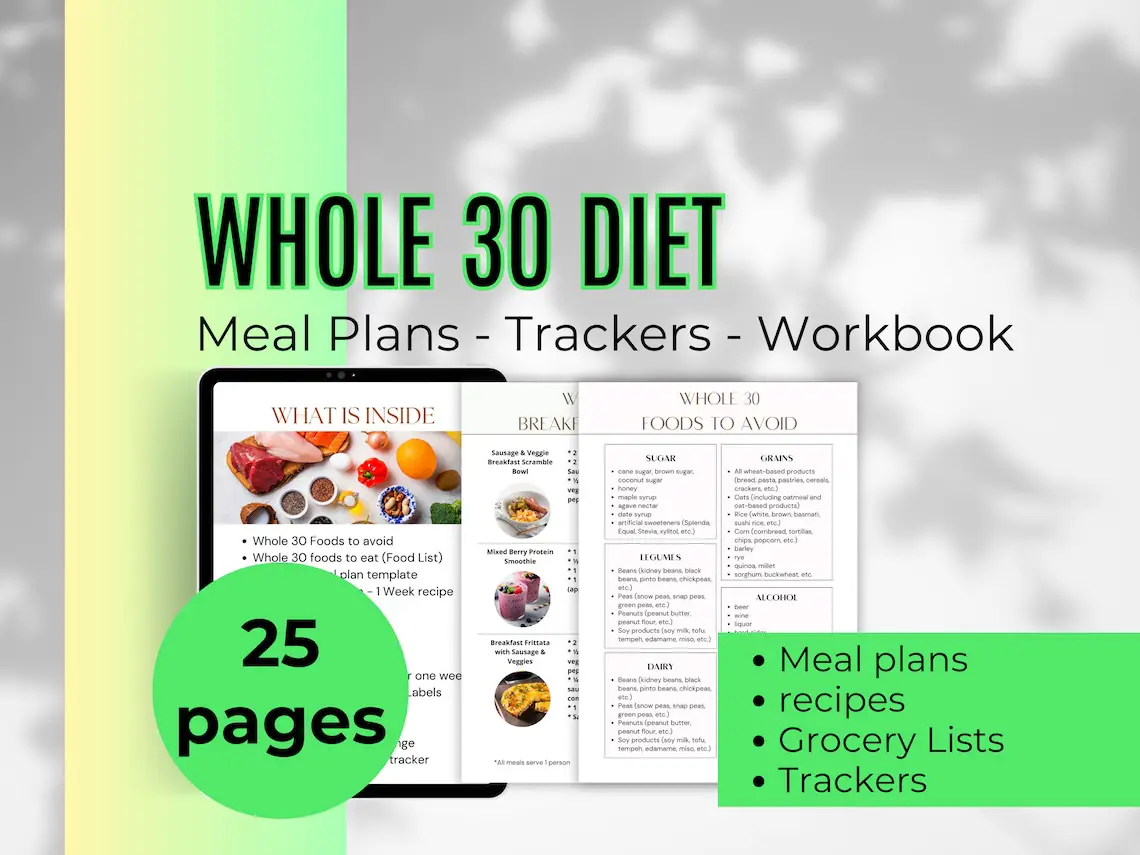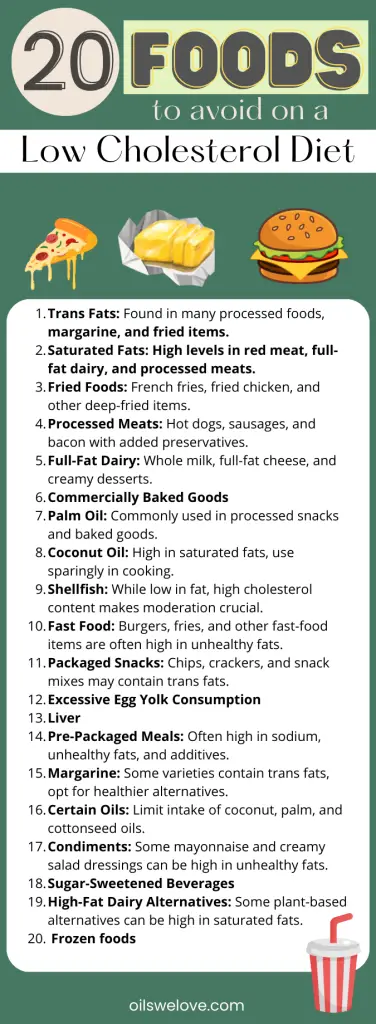Embarking on a journey towards healthy living and self-care can seem daunting, especially when it comes to understanding the intricacies of nutrition. One common concern revolves around cholesterol – a lipid that plays a significant role in overall health.
What is the the distinctions between LDL (bad) and HDL (good) cholesterol? What is its impact on cardiovascular health, and linking high cholesterol to heart disease.
Understanding Cholesterol: The Good and the Bad
Not all cholesterol is bad, in fact, it plays a vital role in our body functions. There are two main types: LDL (low-density lipoprotein), often termed as ‘bad’ cholesterol and HDL (high-density lipoprotein), known as ‘good’ cholesterol. While LDL cholesterol contributes to fatty buildups in arteries (atherosclerosis), HDL cholesterol carries LDL cholesterol away from the arteries back to your liver where it’s broken down and removed from your body.
Who is At Risk for High Cholesterol?

- Whole30 meal plan with 21 recipes
- Food lists (what to eat and what to avoid)
- 31 Things to Avoid on Food Labels
- Whole30 food trackers
- Grocery Lists. Challenges. Symptoms Tracker
High cholesterol doesn’t discriminate, it can affect both men and women, young and old.
High cholesterol can be influenced by many factors. Age and sex can play a role, as cholesterol levels tend to increase with age. Men are generally at a higher risk than women, and your risk can be higher if high cholesterol runs in your family.
Unhealthy lifestyle choices such as a poor diet, obesity, lack of exercise, smoking, and excessive alcohol consumption can all contribute to high cholesterol. Certain medical conditions, including diabetes, kidney disease, and hypothyroidism, can also increase your risk.
Given these risk factors, everyone should consider getting their cholesterol levels checked regularly as part of a preventive healthcare strategy.
Why It’s Vital to Manage Your Cholesterol Levels
Your body requires some cholesterol to build healthy cells, but too much of it can develop fatty deposits in your blood vessels. This can increase the risk of heart disease as these deposits can break and form a clot, leading to a heart attack or stroke.
Excessive cholesterol can block blood flow in the arteries that supply your heart and brain. This is why it’s critical to manage your cholesterol levels. Correct management can prevent the buildup of LDL cholesterol—the “bad” type—and promote HDL cholesterol—the “good” type.
Why Some Cholesterol Is Necessary for Good Health
Contrary to popular belief, cholesterol itself isn’t bad. Your body needs it to build cells, make vitamins and hormones. HDL, or high-density lipoprotein, is often referred to as “good” cholesterol. It carries cholesterol from other parts of your body back to your liver, where it’s removed.
Pro Tip: A diet rich in omega-3 fatty acids, soluble fiber, and healthy fats can help increase your HDL levels.

20 Foods that Boost Your Cholesterol Levels
Eating certain foods can significantly raise your cholesterol levels. Saturated fats found in red meats and full-fat dairy products and trans fats found in baked goods and fried foods play a significant role in increasing cholesterol. Additionally, foods high in sugar and refined carbohydrates, such as white bread, pasta, and crackers can also lead to high cholesterol.
Meats to Avoid for Cholesterol Control
Choosing lean meats, such as poultry or fish, can play a crucial role in controlling your cholesterol levels. Processed meats, like hot dogs, sausages, and deli meats are high in cholesterol and should be avoided. Consider healthy alternatives like legumes, soy products, and lean cuts of meat.
Pro Tip: Always opt for ‘loin’ or ’round’ cuts of meat, as they are the leanest.
Breakfast Foods that Raise Your Cholesterol
Breakfast, being the most important meal of the day, should be both delicious and nutritious. However, typical breakfast foods like certain cereals, bacon, and some bread can skyrocket your cholesterol levels. Prioritize low cholesterol foods like oats, whole grain bread, and fresh fruits to start your day right.
Unhealthy Dairy Products
While dairy products are necessary for a healthy diet, they can also contribute to high cholesterol levels if not selected carefully. Whole milk, full-fat cheese, and some butter substitutes are high in saturated fats, which raise your cholesterol levels. Opt for low-fat or non-fat dairy products to manage your cholesterol levels effectively.
Fast Foods and Cholesterol
Fast food is convenient, but it’s also a major contributor to high cholesterol levels. Fried foods and processed snacks, which are high in both fat and cholesterol, are the main culprits. Making healthier choices when eating out, like opting for grilled over fried or choosing whole grain over refined, can significantly help in maintaining healthier cholesterol levels.

Sweets, Treats and Cholesterol
Often, the sweetest pleasures come with a price. Sugar-packed desserts and treats pose a significant risk for boosting your cholesterol levels.
-
- The link between high sugar consumption and cholesterol levels
Excessive intake of sugar can increase levels of triglycerides, a type of blood fat, which subsequently raises LDL, the ‘bad’ cholesterol. This directly contributes to the risk of heart disease.
-
- Why most desserts should be limited or avoided
Most desserts are filled with sugars, saturated fats and trans fats, all on the ‘avoid’ list for managing cholesterol levels. Reduce your intake to maintain a cholesterol-friendly diet.
-
- Understanding the cholesterol content in your favorite sweets
Take a moment to read the nutritional labels on your favourite sweet treats. You may be surprised by the amount of sugar, saturated fat, and cholesterol they contain.
-
- Healthier dessert alternatives to consider
Consider fruit-based desserts, dark chocolate, and desserts made with whole grains and healthy oils. However, ensure these alternatives are consumed in moderation.
Managing your cholesterol levels is integral to maintaining a healthy and balanced lifestyle. While, some modifications in your diet, lifestyle and regular health checks are needed, the payoff in terms of long-term health far outweighs the effort. With constant vigilance and the right choices, a cholesterol-friendly way of life is an attainable goal. Start your journey today to reap the rewards tomorrow.






